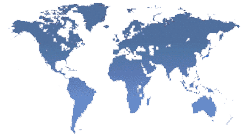

"Situating Russia: Imperial spaces, national boundaries"
"Kliazma" Center near Moscow
December 15-17, 2000
Program
Participants
Program
The meeting will be conducted as a workshop, in the style of a roundtable. A short presentation will begin each session, followed by discussion.
- Revising the proposal.
- Working out a research program; selection of Research Teams.
- Planning meetings for review of interim results and preparation of publications.
- Coordination with other teams of the CRN.
- Session one (Saturday morning)
Revising the proposal — Official and Vernacular IdentificationsBecause our project in Russia is part of a larger whole, we will begin with an overview of the comprehensive projectís basic idea (the ubiquitous tension between officially-imposed identities and the way that they are accepted, modified, or resisted from below). We will then discuss how "Imperial spaces, national boundaries: Situating Russia, the USSR, and the Post-Soviet States" exemplifies this basic conception.
- Session two (Saturday afternoon)
Working out a research program; selection of research teamsThree key words animate our Russia project: nation, empire, and identity. Literally dozens of scholars are actively doing research on discrete topics concerning these signifiers. Yet very little work has been done by scholars from Europe and America in collaboration with scholars from the former Soviet Union. Our project aims to break down the isolation of individual scholars from east and west and create small teams of researchers, who will go into the field together, collaborate on their writing, and present their work to workshops in which other teams will also present their findings.
Very concretely, we need to identify topics within three time periods — imperial Russia, the Soviet Union, and Post-Soviet — and individuals willing to lead working groups to investigate these topics. It is imperative that junior researchers — graduate students, young professors — be attracted to these teams. They will have the opportunity to work with senior colleagues as well as with their peers, from the west as well as from the states of the former Soviet Union.
- Session three (Saturday evening)
Planning meetings for review of interim results and preparation of publicationsThe Moscow meeting is key to setting up the actual operation of this collaborative research project and in starting the process of collecting data and writing up results. A mechanism will have to be devised to keep the semi-autonomous working groups of the Russia project in touch with one another while they pursue their own research objectives.
- Session four (Sunday morning)
Coordination with other teams of the CRN "Identifications," working in other world areasThe unique opportunity, and unique challenge, of this project is its international networked character. Other teams (in France, in western China, and in Thailand), working within the overall framework of "Official and Vernacular Identifications," will be in regular touch with each other throughout the two years of fieldwork (2001-2002). There will be a round of meetings in 2001 and in 2002 for representatives of each team to visit all the other teams in their own field locations to discuss progress in their research.
The culmination of this comparative perspective will come at a final, summary conference at Yale University in 2003, where individuals and working groups will present their findings and draw conclusions in roundtable discussions before an audience of disciplinary and area specialists and foundation officers.
The invitation to participate in the international Collaborative Research Network "Identifications" is an opportunity, but also a challenge. Cooperation by scholars from different countries is not rare, but this project is unique in its intellectual ambition, its geographic range, and its innovative structure of teams cooperating with one another. It is therefore crucially important that the core organizers of the project — who will be identified at the meeting in Moscow Dec 15-17 — are willing to undertake the intellectually and organizationally difficult work necessary to make it succeed.
| Participants
|
For further project information contact Olga Buhkina. For other ACLS contacts, see staff listing.
© American Council of Learned Societies, All Rights Reserved